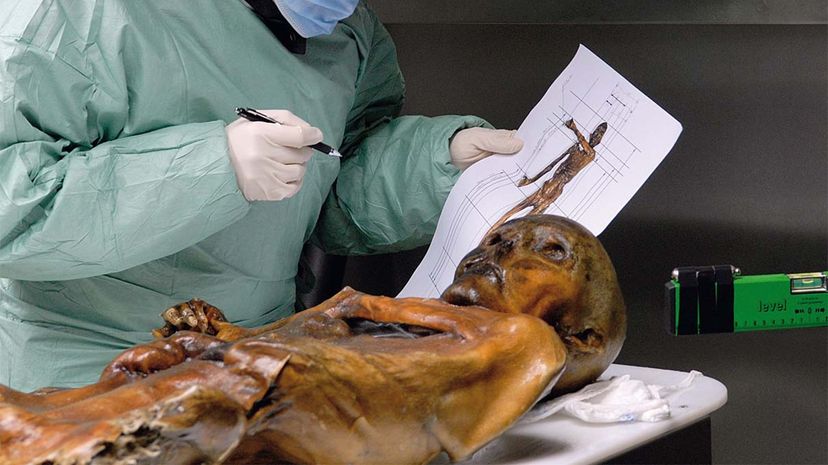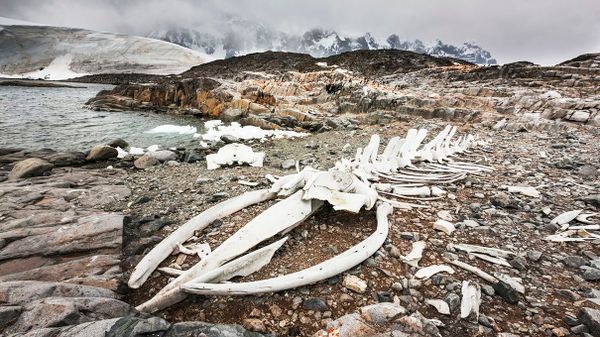
These days, a lot of people try to control their weight and improve their health by trying to emulate the diet of our ancient pre-agricultural human ancestors. Now, they have an actual ancient menu of sorts to follow — the last meal of Otzi, aka the Iceman, a 5,300-year-old man whose frozen body was found by German tourists in the Italian Alps back in 1991.
An international group of researchers has conducted the first in-depth study of the contents of Otzi's stomach and small and large intestines, as detailed in an article published July 12 in the journal Current Biology. They used a combination of multi-omics — studies involving different biomolecules, such as ancient DNA, proteins, metabolites and lipids — and microscopic examination to reconstruct the exact composition of Otzi's food intake, just before his apparent violent death from massive bleeding caused by an arrow wound in his shoulder.
Advertisement

Otzi's stomach still contained a small amount of food that he was in the process of digesting, including animal muscle fibers and plant fragments, as well as metabolic compounds that indicated the presence of dairy products and whole-grain cereals. In addition to the chemical analysis, the researchers also analyzed DNA they found in the food and studied bacteria in Otzi's gastrointestinal tract.
From that, they determined that Otzi's last meal probably consisted of ibex and red deer meat that he ate either fresh or dried, and fat from grazing animals or dairy products, supplemented with einkorn, a wild species of wheat.
Otzi's diet was high in fat, with its residues making up between 27 and 46 percent of his stomach's contents. The researchers think that wasn't by accident. In the cold, high-altitude environment in which Otzi lived, it was a challenge to avoid starvation and energy loss. "The Iceman seemed to have been fully aware that fat displays an excellent energy source," the researchers wrote.
Puzzlingly, Otzi's stomach also contained particles of toxic bracken fern and mosses, which may have come from plant material used to wrap his meat. Another possibility, mentioned in a press release on the research, is that Otzi took the toxic fern as a medicine for intestinal problems related to parasites found in his gut.
Advertisement
